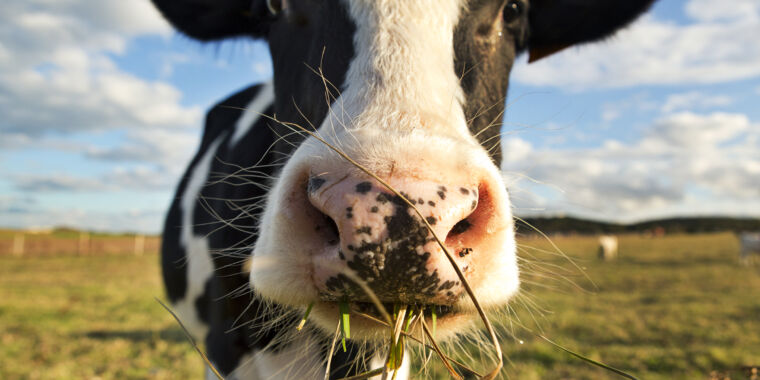
Researchers Eliminate Matrix Multiplication in LLM...
Researchers have made a groundbreaking discovery in the field of artificial intelligence by eliminat...
Read more
Source: https://arstechnica.com/science/2024/06/cleaning-up-cow-burps-to-combat-global-warming/
A new study published in the journal Science has shown that it is possible to reduce methane emissions from cows by as much as 30% using a feed supplement called 3-NOP. Methane is a potent greenhouse gas, and cows are a major source of it due to their digestive processes. The study was conducted by researchers at the University of California, Davis, and involved feeding 3-NOP to a group of dairy cows. The cows that received the supplement produced significantly less methane than those in the control group. The researchers believe that 3-NOP works by inhibiting the enzyme that produces methane in the cow's gut. The study's findings are significant because they suggest that there is a way to reduce methane emissions from cows without sacrificing milk production. However, more research is needed to determine the long-term effects of 3-NOP on cows and the environment. The study also highlighted the importance of addressing methane emissions from agriculture. With the world facing a climate crisis, it is critical that we find ways to reduce greenhouse gas emissions from all sectors, including agriculture. The study's findings suggest that there is potential to reduce methane emissions from cows using feed supplements. This could be a significant step towards mitigating the effects of climate change.
Summary
"The study showed that 3-NOP, a feed supplement, can reduce methane emissions from cows by up to 30%. This is a significant finding as methane is a potent greenhouse gas, and cows are a major source of it. More research is needed to determine the long-term effects of 3-NOP, but the findings suggest a potential way to reduce methane emissions from agriculture, a key step in combating climate change."
Updated at: 06.22.2024
Categories